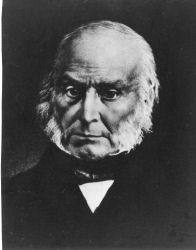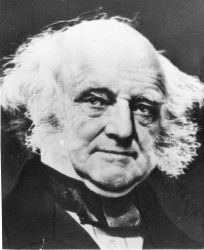end of header
History
You are here: Census.gov › History › Agency History › Director Biographies › Directors 1820 - 1830
Director Biographies
Directors 1820 - 1830
The secretary of state was the nominal director of the first five censuses, responsible for supervision and compilation of each U.S. marshal's tabulation. In reality, these cabinet officers did very little actual directing. The authorizing legislation for most early censuses was very specific, and the marshals oversaw the actual enumeration process.
 John Quincy Adams (1820 census): Adams was born in Braintree, Massachusetts in 1767. He spent much of his childhood accompanying his father, the nation's second president, John Adams, on diplomatic missions across Europe. While his father was vice president, President Washington appointed John Quincy Adams as minister to the Netherlands. He was named minister to Prussia during his father's presidency. Adams entered the political arena in 1802, when he was elected to the Massachusetts Senate. He was a U.S. senator from 1803 until 1808 before returning to diplomatic duties, (including negotiating the Treaty of Ghent) until 1814.
John Quincy Adams (1820 census): Adams was born in Braintree, Massachusetts in 1767. He spent much of his childhood accompanying his father, the nation's second president, John Adams, on diplomatic missions across Europe. While his father was vice president, President Washington appointed John Quincy Adams as minister to the Netherlands. He was named minister to Prussia during his father's presidency. Adams entered the political arena in 1802, when he was elected to the Massachusetts Senate. He was a U.S. senator from 1803 until 1808 before returning to diplomatic duties, (including negotiating the Treaty of Ghent) until 1814.
John Quincy Adams served as secretary of state for James Monroe from 1817 until 1825, during which time he supervised the 1820 census, and oversaw a congressionally mandated expansion of its focus. For the first time, there was a rudimentary attempt to count occupations, and more details were collected on non-Whites.
Adams was elected president in 1824, in a contest that was so bitter that his legislative agenda was almost crippled by congressional rivals, especially Jacksonian Democrats. After he was defeated for reelection in 1828, Adams became the first and to date only president to return to elected office, serving in the U.S. House of Representatives from 1831 until 1848. He died in Washington, DC in February 1848.
 Martin Van Buren (1830 census): Van Buren was the first president who was born after the signing of the Declaration of Independence, in Kinderhook, New York in 1782. Most of Van Buren's early adulthood was spent practicing law; he used the wealth accumulated there to enter politics. In 1812, he entered the New York state senate. Van Buren was originally part of the Clinton family political machine, which controlled the largest faction of the ruling Democratic-Republican Party. His later political machinations also seemed instrumental in bringing about the demise of the Clinton family's political machine, eventually driving Governor DeWitt Clinton from office.
Martin Van Buren (1830 census): Van Buren was the first president who was born after the signing of the Declaration of Independence, in Kinderhook, New York in 1782. Most of Van Buren's early adulthood was spent practicing law; he used the wealth accumulated there to enter politics. In 1812, he entered the New York state senate. Van Buren was originally part of the Clinton family political machine, which controlled the largest faction of the ruling Democratic-Republican Party. His later political machinations also seemed instrumental in bringing about the demise of the Clinton family's political machine, eventually driving Governor DeWitt Clinton from office.
Van Buren was a leading member of the "Bucktails," the machine that controlled much of New York state politics in the 1820s and 1830s. Van Buren himself was elected to the U.S. Senate in 1821, becoming an ally of Andrew Jackson after the acrimonious presidential election of 1824. He was instrumental to the strong grassroots organization that helped Andrew Jackson win the presidency in 1828. That same year, Van Buren himself was elected as governor of New York, and resigned his senate seat. Five months later, however, when the Jackson administration came into power, he was appointed secretary of state and resigned as governor. In 1830 Van Buren became the last secretary of state to oversee census operations. Like his predecessors, his role was minor. However the 1830 census itself was a more polished activity than the previous four.
As a member of Jackson's cabinet, Van Buren earned the president's admiration by refusing to join the wives of most of the other cabinet members in ostracizing Secretary of War John Eaton's young second wife, Peggy Eaton. This spat, as trivial as it seems, eventually resulted in the resignation of several members of the president's cabinet and drove a permanent wedge between Jackson and his vice president John C. Calhoun. After the incident, Van Buren became the heir-apparent to the vice presidency and was elevated to that position after Jackson was reelected in 1832.
Jackson anointed Van Buren as his successor in 1836, and he was elected president. The Van Buren administration was crippled early by the panic of 1837, an economic downturn that his rivals effectively blamed on him. He lost his reelection bid in 1840 to a surging Whig Party led by William Henry Harrison. Although he made another attempt at the presidency, as the candidate for the Free Soil Party, Van Buren's public life came to an end after the election of 1848. He died in Kinderhook, NY in July 1862.
Comments or suggestions?




